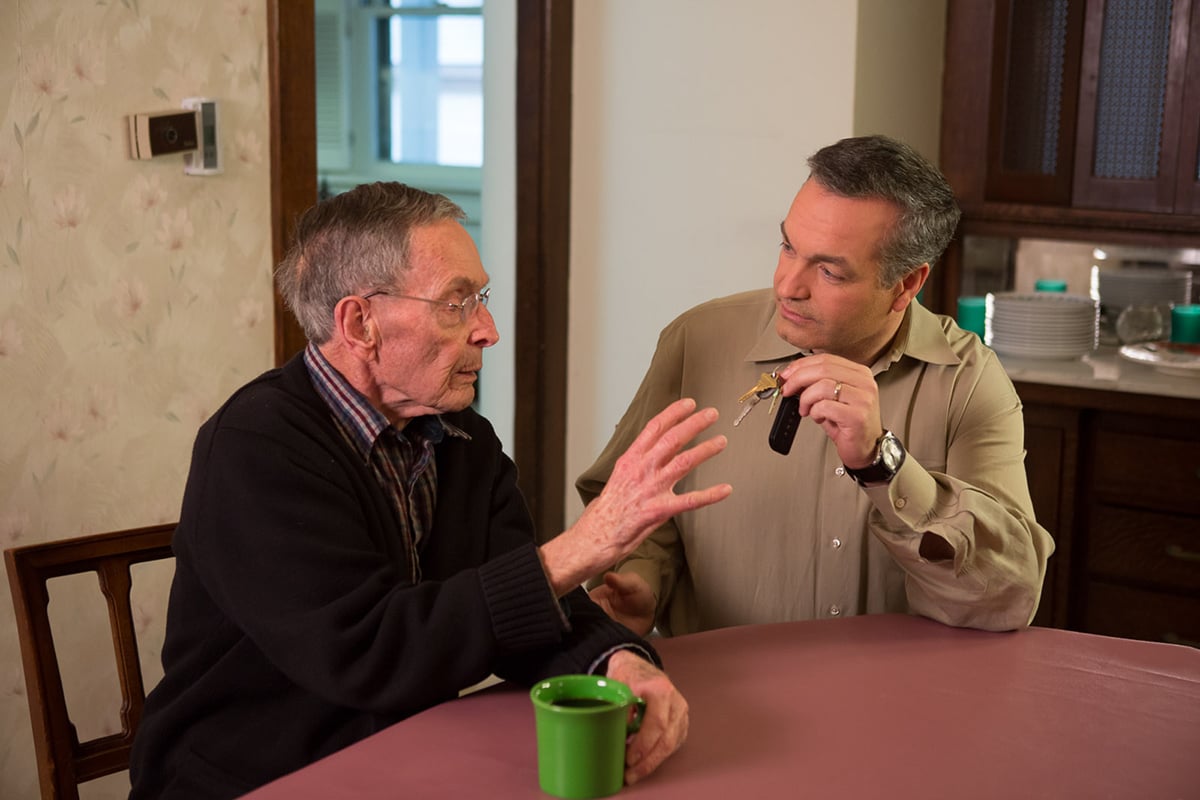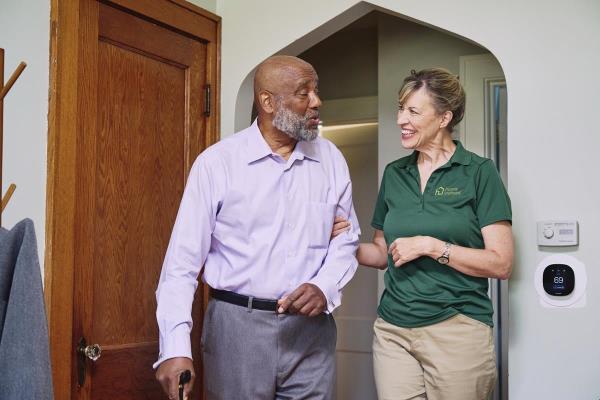Sometimes the signs are subtle. Other times, they come blazing to attention. Julia remembers her first warning sign. It was when her mother got lost going to the dentist.
“She was gone for three hours and never made it to her appointment,” Julia said. “Later, we would ride the backroads to the store. Then she started clocking 60 mph in a 30 mph zone. She eventually gave up the keys, but she wasn’t happy about it.”
Julia was smart to accompany her mother to get first-hand evidence of her mother’s changing driving abilities. It’s important to collect the facts before making any recommendations about continued driving.
Here are some signs that further investigation could be needed:
- Those mysterious dents
A fender bender can happen to anyone. However, if an older adult can’t seem to explain what happened or you notice multiple instances of damage, further investigation may be needed to evaluate if there has been a change in the older adult's driving abilities.
- Trouble turning to see when backing up
The issues of aging could compromise mobility and, in turn, certain important movements needed to drive safely, like looking over the shoulder. Fortunately, newer vehicles are offering more affordable options such as back-up cameras and other assistive technologies that could help older adults compensate for some of these issues of aging.
- Confusing the gas and brake pedals
You’ve seen the headlines: “Aging driver goes through the garage door after confusing gas pedal for brake.” Dementia can lead to confusion, which could put an older driver and anyone in his or her path in harm’s way. If an older adult is getting confused about how his or her vehicle operates, it could be time to give up the car keys.
- Increased irritation and agitation when driving
Poor health or chronic pain from conditions such as arthritis can trigger increased irritation and agitation. That irritation and agitation could lead to poor judgment on the road.
- Bad calls on left-hand turns
Turning left can be tricky and dangerous for older adults who may have experienced a decline in cognitive abilities needed to make safe judgments while driving. According to driving expert Elin Schold Davis, many accidents involving older adults occur where there is an unprotected left turn (no turning arrow). An unsafe left turn could lead to a serious crash and life-changing injuries.
- Parking gone awry
Difficulty parking, including parallel parking, could cause damage to an older adult’s vehicle as well as those vehicles around it. Watch for signs that an individual is having problems parking or backing up.
- Difficulty staying within the lanes.
Ever spotted someone zigzagging along the road? If it’s an older adult, it could be a sign that fatigue or vision problems are making it difficult to stay the course.
- Delayed reaction and response time
Safe driving depends on quick reaction times. Issues of aging can slow those response times to create a situation where an older adult may cause an accident or be unable to respond quickly enough to prevent a crash.
- Driving the wrong speed
Like Julia’s mother, driving too fast for the speed limit or conditions of the road are indicators that a driver’s judgment may be impaired. Driving too slowly could be just as dangerous and also a sign that something could be amiss.
- Riding the brake
Riding the brake could be a sign that a driver no longer has confidence in his or her skills. A foot constantly on a brake also is hard on a vehicle. It could be time to investigate further if a older adult is riding the brakes.
Seeing one of these signs might not mean a older adult’s driving days are over. Try getting to the root of the problem before making any big decisions. Consider a comprehensive driving evaluation by an occupational therapist. If you do need to retire from driving, consider these tips for making the transition away from driving.
Compassionate Home Care





